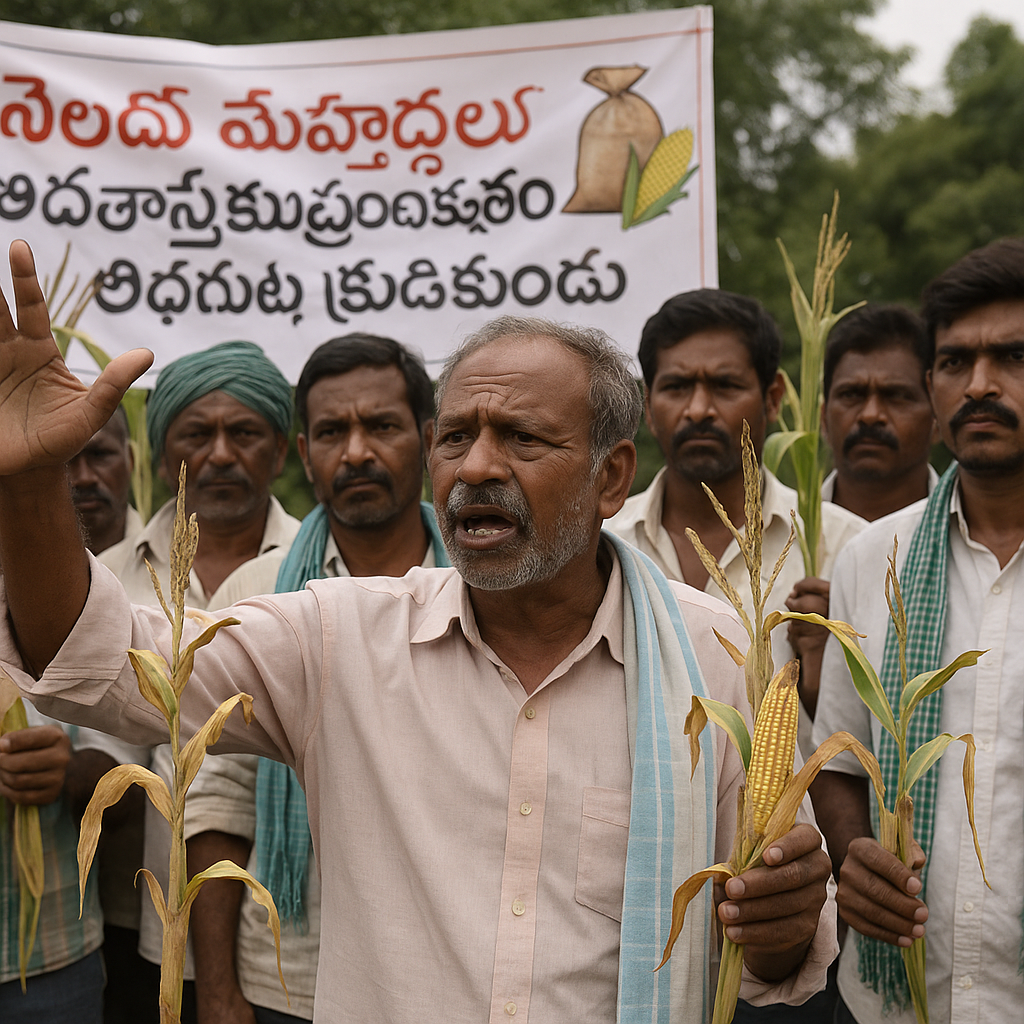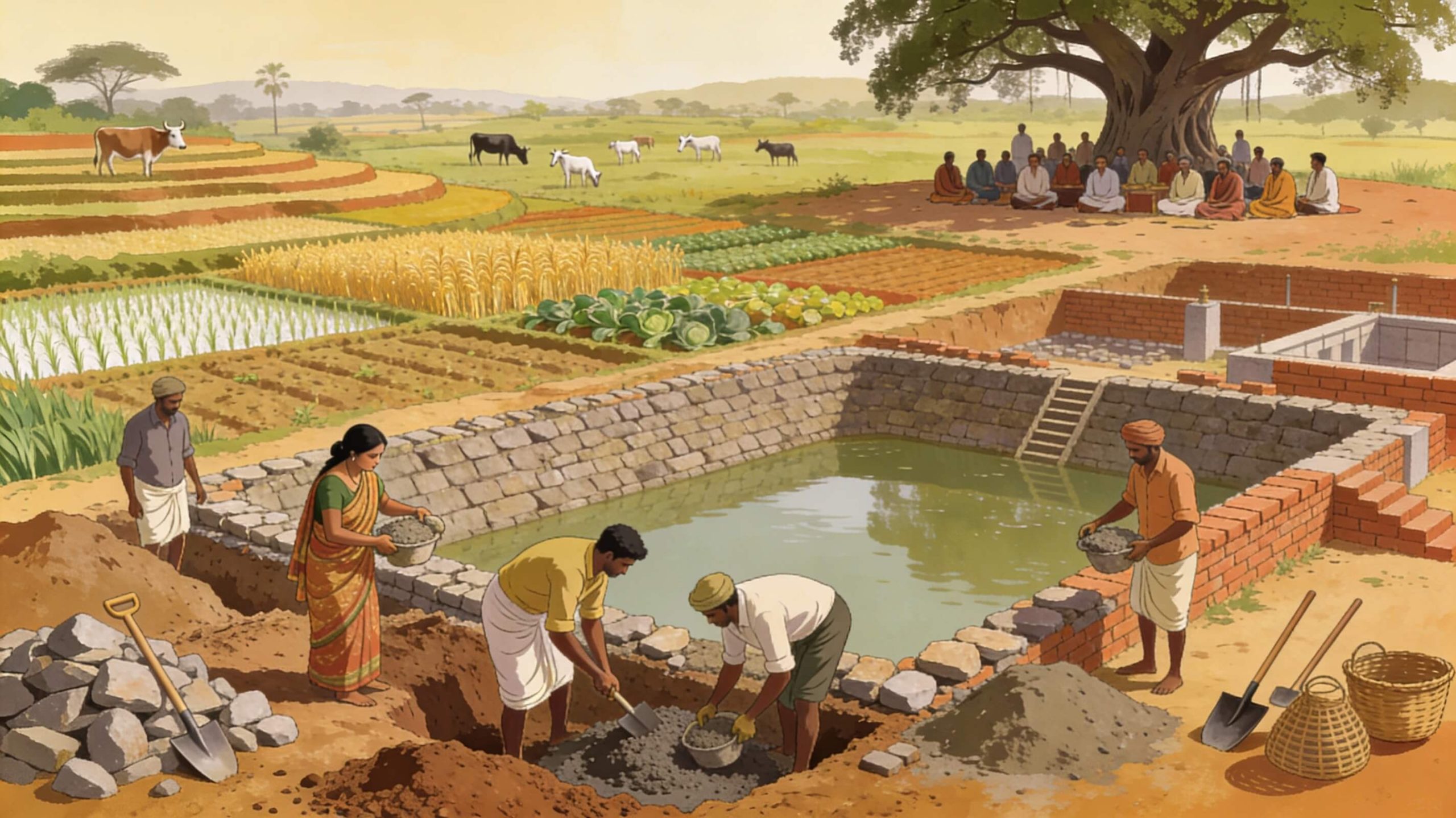Farmers in Telangana’s Mulugu district are facing severe challenges due to crop failures linked to counterfeit maize seeds. Over 2,000 acres of farmland have been affected, leading to significant financial losses. Farmers have expressed their distress and are now demanding action from seed companies. They are seeking agreements to protect their rights and ensure better quality seeds in the future.
At a recent meeting chaired by M. Kodanda Reddy, the Chairman of the Telangana State Agriculture and Farmers’ Welfare Commission, the need for a new Seed Law was discussed. This law aims to enhance farmers’ rights and hold seed companies accountable. Reddy indicated that the law will be introduced within the next 15 to 20 days. He emphasized that strong regulations are necessary to prevent further exploitation of farmers.
The meeting took place in Gadwal, where various stakeholders, including farmers, seed organizers, and company officials, gathered to share their experiences. Many farmers reported that poor quality seeds led to debts and, in some tragic cases, even suicides. Reddy praised the cotton crop’s competitiveness in international markets but acknowledged the pressing issues faced by farmers.
In light of the situation, National ST Commission member Jatoth Hussain Naik demanded immediate compensation for farmers affected by the counterfeit seeds. During his visit to Mulugu, he spoke to local tribal farmers who reported devastating crop losses. Naik urged the government to compile a list of affected farmers and ensure they receive the compensation they deserve.
The farmers’ plight highlights a broader issue of mistrust in seed companies. Reddy noted that farmers often lose faith in these organizations, leading to financial losses for both parties. The new Seed Law aims to rebuild this trust by ensuring direct communication between farmers and seed companies.
In addition to addressing farmers’ rights, the new law will focus on protecting women in agriculture. The government recognizes the vital role that women play in farming and seeks to ensure justice for them as well. Reddy pointed out the government’s previous successes in resolving issues for maize farmers, which sets a positive precedent for the new law.
The Telangana government is also looking at amending existing agricultural market laws to bolster farmer protections. This includes reinstating provisions from the 2005 Contract Farming Law and implementing stricter regulations against fake seed production. These changes aim to create a more transparent and fair market for farmers.
As the government moves forward with these initiatives, it is crucial for farmers to stay informed about their rights. Understanding land rights is vital, especially as agriculture remains a cornerstone of the economy. The government is committed to incorporating farmers’ suggestions into policy-making, ensuring that their voices are heard.
Farmers have been encouraged to engage with local authorities and share their experiences. By doing so, they can contribute to the development of policies that better serve their needs. District Collector B.M. Santhosh assured farmers that the administration is working on solutions to the seed-related issues they face.
The meeting concluded with a commitment from the government to address the challenges faced by farmers in a detailed and structured manner. With an estimated 40,000 farmers growing cotton seeds across 30,000 acres, the agricultural sector in Mulugu is of great importance to the local economy. A concerted effort is needed to ensure that farmers can thrive and contribute to the state’s agricultural success.
The situation in Mulugu serves as a reminder of the vulnerabilities faced by farmers in the modern agricultural landscape. As the government prepares to introduce new regulations, it is hoped that these measures will lead to a more equitable and sustainable farming environment for all.





